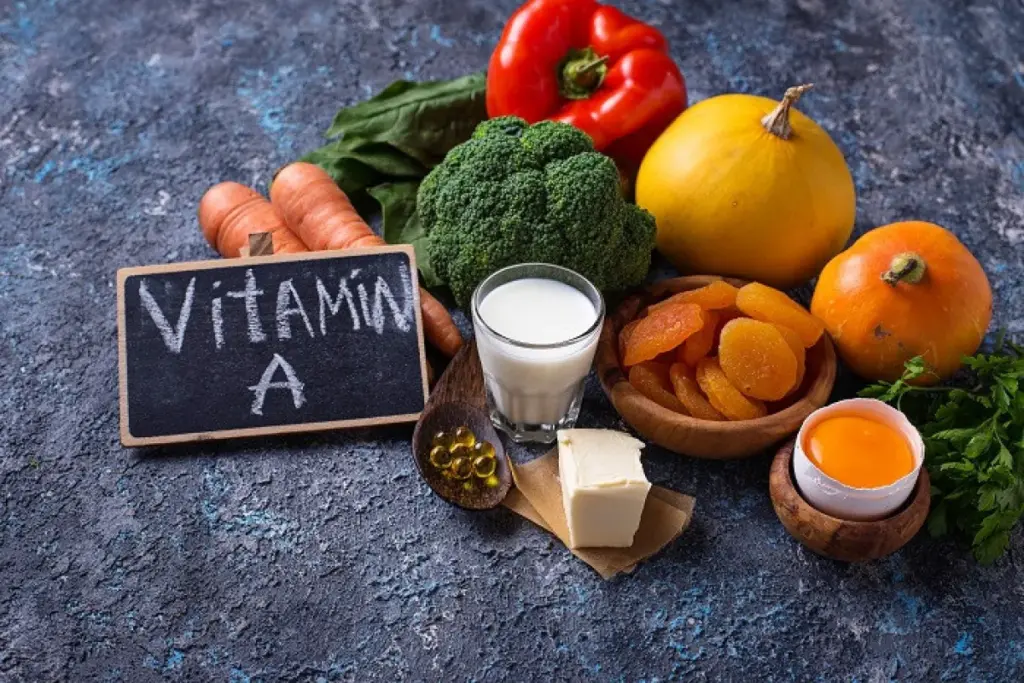Vitamin A
also known as retinol, plays a vital role in our overall health. It has several important functions, including supporting our immune system, aiding vision in low light, and maintaining the health of our skin and certain body linings.
There are various sources of vitamin A that we can include in our diet. Good sources of retinol include cheese, eggs, oily fish, fortified low-fat spreads, milk, yoghurt, and liver products. However, it’s important to note that consuming liver or liver products more than once a week can lead to an excessive intake of vitamin A, which may have negative effects, especially for pregnant women.

In addition to retinol, we can also obtain vitamin A by consuming foods rich in beta-carotene. Our bodies can convert beta-carotene into retinol. Some excellent sources of beta-carotene include yellow, red, and green vegetables like spinach, carrots, sweet potatoes, and red peppers, as well as yellow fruits such as mango, papaya, and apricots.
the recommended daily intake of vitamin A varies based on gender, with men needing #700 µg and women needing 600 µg. It’s important to note that our bodies can store excess vitamin A for future use, so we don’t need to consume it every day.
Taking excessive amounts of vitamin A over a long period of time may have negative effects on bone health, particularly for older individuals who are already at risk of osteoporosis. It’s important to be mindful of our vitamin A intake, especially if we consume liver or liver products regularly or take supplements that contain vitamin A. The recommended limit for #vitamin A intake is 1.5 mg (1,500 µg) per day from food and supplements combined.
Vitamin E plays a crucial role in maintaining skin and eye health while fortifying the body’s natural defense against illness and infection, known as the immune system.
Sources of vitamin E are diverse and include
– Plant oils like rapeseed (vegetable oil), sunflower, soya, corn, and olive oil.
– Nuts and seeds.
– The wheat germ, is present in cereals and cereal products.
Recommended daily intake
– 4mg for men
– 3mg for women
A well-balanced diet should provide sufficient vitamin E, and any excess not immediately needed is stored for future use, eliminating the need for daily intake.
While the effects of high doses of vitamin E supplements remain uncertain, the Department of Health and Social Care suggests obtaining the required amount through a varied and balanced diet. Caution is advised against excessive vitamin E supplement intake, as it could be harmful. Taking 540mg (800 IU) or less a day of vitamin E supplements is unlikely to cause harm.
